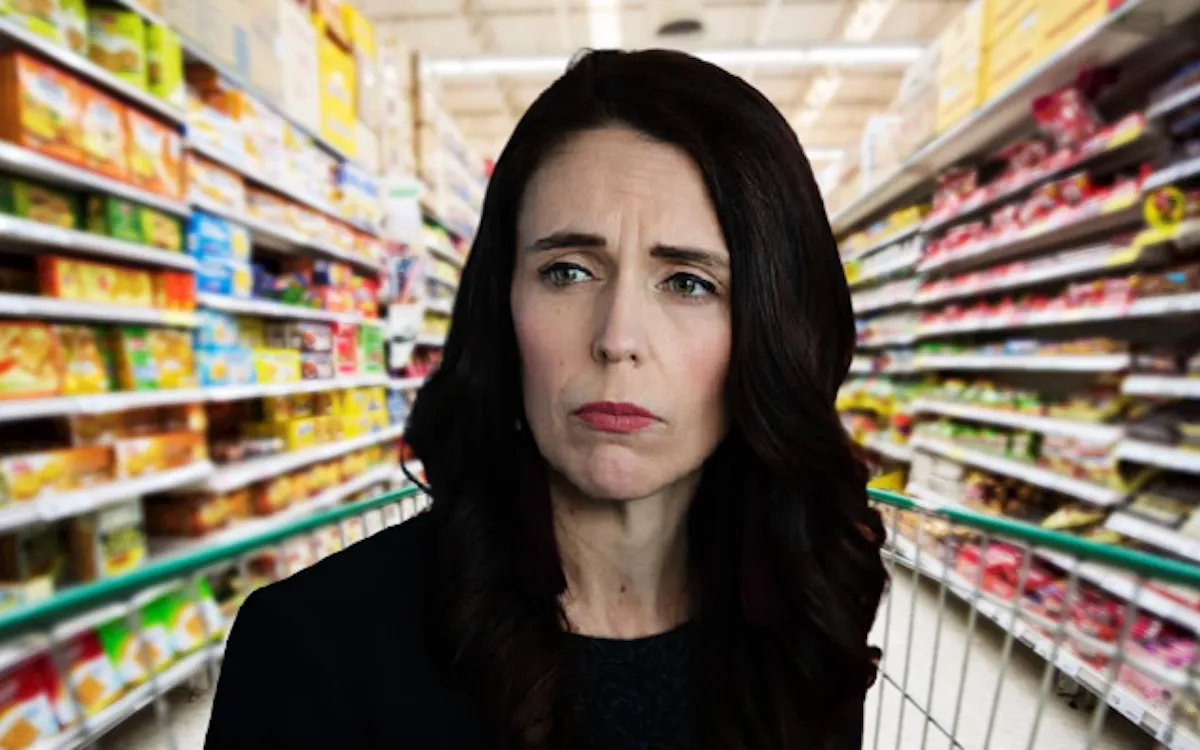Table of Contents
Dr Bryce Edwards
democracyproject.nz
Dr Bryce Edwards is Political Analyst in Residence at Victoria University of Wellington. He is the director of the Democracy Project.
The supermarket sector is finally about to receive some serious government intervention. Following a scathing report from the Commerce Commission, it’s now almost inevitable that the Labour Government is going to have to introduce some major changes to this vital but uncompetitive retail sector. And these moves are likely to be popular.
The report, released on Thursday, met with almost universal praise and celebration. And it surprised everyone with just how scathing it was about the supermarkets, and how radical its early recommendations are.
The first key point the supermarket sector report makes, is that the current groceries sector is utterly broken. It paints a picture of a Foodstuffs and Woolworths duopoly making super-profits – in excess of 20 per cent return on their capital – by ripping off both food suppliers and customers. The report found that food prices are the sixth highest in the OECD. Staff, too, are heavily exploited to help make billions of dollars in profits.
The second key point is the possible suite of reforms that will be necessary to fix the sector. These range from encouraging supermarkets to reform themselves, through to serious state intervention to break up the mega-entities that control the market, or even the state setting up a third supermarket chain (in the way that KiwiBank was introduced).
One of the first media articles on the report on Thursday explained that expectations for the announcement were quite low, and some were ready to be disappointed – see Hamish Rutherford’s The Commerce Commission heaps pressure on Government to deliver supermarket changes (paywalled). He says that “The supermarkets appeared shocked by the report.”
Rutherford summed up the reform options:
“The Commerce Commission’s recommendations for measures to improve wholesale competition are a spectrum, ranging from modest changes on a voluntary basis, to creating a new wholesaler or even forcing the break-up of the groups into retail and wholesale. Aimed at attracting a new major retailer into the New Zealand market, it could be accompanied by forcing the supermarket to sell off certain sites to a new player.”
The Mood for a More Interventionist State in Broken Markets
In the above article, Rutherford also explains that such a scathing and radical report really puts pressure on the Labour Government and the Commerce and Consumer Affairs Minister David Clark to actually carry out some substantial reforms. Rutherford concludes:
“with such a clear verdict of a duopoly exercising market power in such a mammoth sector, the Government will quickly need to find a suitable response.”
Stuff newspapers political editor Luke Malpass also emphasised how the report squarely puts the ball into the Government’s court, making it almost impossible for them to avoid doing something big. He says that normally these types of reports take the pressure off governments:
“Market studies are great for governments. If nothing else, a Commerce Commission probe creates the appearance of government action long before the action happens”, but given the tenor of this particular report, “the Government will have to actually do something this time around”
– see: Labour’s $22 billion supermarket problem — and opportunity.
According to Malpass, David Clark is a good fit for this role (better than the ill-fated Health portfolio), and he’s inclined towards proper reform: “His view is simple: Labour campaigned on doing this, he thinks that there is a mood for real change, and now it will be up to the Government to get on with it.”
Government intervention is also likely to be substantial, Malpass points out, because there’s now a strong public philosophical mood for the state to act:
“This political landscape has changed massively from five years ago. There seems to be a pretty good public appetite for the Government to sort some of these things out. If anything, Labour’s only downside risk here is not doing enough. And if Covid has taught us anything, it’s that – rightly or wrongly – Kiwis are quite happy for governments to intervene in the right circumstances. In the coming cost-of-living political war, the party that convinces voters it is the one on their side will be rewarded.”
This mood for a bigger and more interventionist state, especially in regard to the broken supermarket sector, is very well examined by Max Rashbrooke in his column, Supermarket prices: Politicians have dropped the ball, which begins like this:
“The forensic evisceration on Thursday of our uncompetitive supermarket duopoly is a landmark moment, a sign of shifting attitudes towards capitalism – and a massive test for Commerce Minister David Clark.”
According to Rashbrooke, Clark has a big job ahead, and will have to resist “a determined lobbying campaign by the supermarket duo”, but ultimately will achieve his own redemption if he can create a legacy as the Minister “who broke up the big two”. And the fact that he even has this task is a sign that the “laissez-faire thinking” of the past that allowed the market to evolve into a duopoly is out of fashion.
Rashbrooke points to other broken sectors that will also need reform, including electricity, building supplies (where “Fletchers utterly dominates”), petrol, and banking. And he suggests that in the new environment, National is likely to be onboard with radical reform, “because conservatives need capitalism to work properly and retain the public’s support.”
Economist Cameron Bagrie also thinks the Government has a strong incentive to go hard on supermarkets, and that the construction sector and banking should be next – see: Supermarkets are sitting ducks for pro-competition regulation (paywalled). He notes the Government is building up the Commerce Commission’s capacity, budgeting “$30.4 million extra for the commission over three years, and $13.9m per year thereafter.”
Bagrie believes that reform of the grocery sector will be favoured by Government because rising inflation is “not likely to be economically or voter-friendly”, and “Moving on supermarkets could help around the edges to contain inflation.”
Media commentators are also keen for the Government to deal to the supermarkets. Heather du Plessis-Allan says she’s hoping for big reforms to increase supermarket competition but is not sure this will happen, especially given that promised reforms in the petrol market don’t appear to have worked – see: We pay too much for groceries.
She says reform will be difficult, but electorally rewarding:
“The easy option is to force the supermarket chains to supply a third player with wholesale groceries at reasonable prices so they can compete. The hard option is force the supermarket chains to sell off some of their stores or brands. Either way, this will kick up a storm in the sector. The Government will buy itself a fight. Does it have the courage? I’d like to see it go hard. I think there’s public support from frustrated shoppers.”
Similarly, Kerre McIvor is sceptical of reform eventuating, but says it would be popular:
“waving a stick at big international companies and millionaire supermarket owners is good for votes from families doing it tough, and if this Government knows anything, it’s how to capitalise on populist causes. The big two would be sensible to take this report, and its recommendations, very seriously”
– see: The supermarkets should take ComCom report seriously (paywalled).
Newspaper editorials are also favourable to reform. The New Zealand Herald’s editorial said the report findings “are unsurprising”, but “What’s important is what happens next” – see: Smashing the supermarket duopoly is a safe bet for Labour (paywalled). The newspaper says “with inflation on the way voters are sure to be supportive of any measures to increase competition.”
The Otago Daily Times argues that the reforms must be radical:
“consumers, suppliers, and potential new retailers will be expecting the Government to do something more than tinker”
– see: Supermarket changes unknown.
Although a lot of reform conversation is about helping assist a third supermarket chain into the market, the ODT says greater regulation of current grocery store pricing is also required:
“Questions are already being raised about whether an extra big player or two would necessarily make the improvement sought without some sort of control of the margins on grocery items.”
Marketing lecturer Robert Hamlin, from the University of Otago, is also being reported as advocating regulation above what is required to get a third grocery chain into the market – see RNZ’s Strong regulation needed to counter supermarket price gouging – marketing expert.
He also believes that government price controls must be introduced, arguing supermarkets are “like a power company, they’re essential to modern living, and it’s important that they should be regulated to make sure that they actually do deliver”. Hamlin argues there’s a need for a dedicated senior Minister in charge of supermarkets, rather than just an independent regulator:
“I would imagine there will be a call for an independent regulatory authority… that would be a very poor idea because I doubt if it would stay independent for very long – that it would be captured by the people it’s supposed to be being regulated by.”
This article can be republished under a Creative Commons CC BY-ND 4.0 license. Attributions should include a link to the Democracy Project.
Please share so others can discover The BFD.









